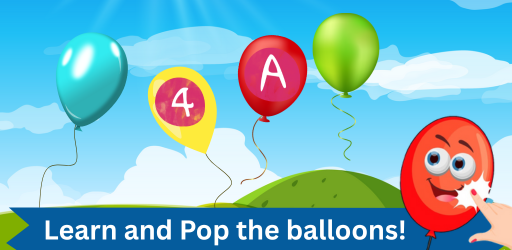Pros and Cons of Word Games for Kids
Word games are fantastic to engage children and make them learn new words in playful ways. Today’s parents have spent a fair amount of time playing games like solving puzzles and completing crosswords in their childhood.
Today children spend hours on their phones, playing computer games, or watching TV, but playing word games can help them learn the language and improve vocabulary. However, every good thing has some disadvantages too. Let us explore the pros and cons of playing word games in this post.
Pros of Word Games
- Improves your child’s vocabulary
The more words your kids acquire use, and understand; the more they will improve their vocabulary. Yes, word puzzles can be a simple and effective way to improve your child’s vocabulary. You also have the opportunity to see the word used in context and learn its meaning.
- They improve your child’s working speed
Word puzzles improve the processing speed of your child. So they can solve problems faster and lead to solutions. An improvement in speed not only helps with literacy skills, but also with other classroom tasks that require quick thinking, such as reading text, understanding, and making calculations. This will also improve your child’s mathematical calculations and analytical skills.

Mental Math App for Kids
The mental math games are all about the ability of thinking and solving a problem in your head. It builds that critical thinking in a child’s mind and makes him able to deduce solutions to different problems.
- Improve problem-solving skills
Crossword puzzles get your child thinking about how each of the words in the puzzle interacts, while code breakers encourage them to consider several possible solutions before determining an accurate answer.
In addition to vocabulary and spelling, most word puzzles also require logical and strategic thinking. Word puzzles inspire kids to think outside the box and exercise their problem-solving and creative skills.
- Level up their knowledge
Another key benefit of word games is that they help children gain knowledge through subliminal learning. As you may know, most word games have themed levels that vary the categories and collection of words your child will learn. Topics can be shapes, numbers, and periods, that prepare children for their elementary school years.
Cons of Word Games
- Word search puzzles can be very easy to solve
As your child excels in spelling, vocabulary, and pattern recognition skills, their word search puzzle-solving skills will also improve. As these skills improve, and while it’s great, word games and puzzles may seem boring.
Kids will find that solving puzzles becomes easier and easier for them, and it may seem like the puzzles are getting very easy. When a puzzle seems “too easy”, it may also seem boring.
- Require spelling/reading skills
Word search puzzles may not be fun for kids who lack spelling and reading skills. They may lag in reading and solving word puzzles, because they don’t have the basic skills to solve them.
To solve a word search puzzle, kids must be able to read and recognize words. However, reading and spelling skills may improve with more exposure to word search puzzles.
- Searching for words takes time
Yes, if you’re looking for quick and easy entertainment, you won’t find it in a word search. For some kids, a puzzle that requires so much time and attention isn’t ideal, and that’s why word search puzzles may waste the time that they need to spend on their studies. Some word search puzzles are difficult and time-consuming to solve, but having a user friendly tool to find words can make things easier.
- Failure to solve the puzzle
If your child can’t find a word in the grid, frustration is likely to set in. In fact, it definitely begins! The more kids struggle to find the hidden word, the greater the frustration they are likely to develop.
As you can imagine, failure to solve word games can be very frustrating and lead to an angry outburst or temper tantrum.
Summing Up
Although there are both advantages and disadvantages of word games, it should not stop your kids from playing crosswords or puzzles. Word games when played for a limited amount of time can help improve their command of the English language and vocabulary. In addition, they can improve their problem-solving skills and speed. With so many benefits, there is no reason not to allow your kids to play crosswords and word games.
FAQs
1. What are some popular word games for kids?
Some popular word games for kids are: Scrabble, Hangman, Jenga and Word Ladder Bananagrams.
2. Can word games improve a child's vocabulary and spelling skills?
Yes, Word games help kids recall words and increase their vocabulary. Furthermore, word games teach children about word structure as well as spelling conventions, which leads to better writing skills.
3. Are there any negative effects of playing too many word games?
Yes, playing too many word games can become addictive and lead to compulsive behavior. This can cause a person to neglect other important areas of their life, such as work, relationships, and self-care.
4. How can parents encourage their children to play word games?
Praise her play. Offer open-ended toys Invite the neighbors Set screen limits Be realistic Teach by example.
5. Are there any age-appropriate word games for young children?
Children are verbally engaged in classic games such as I-Spy and The Prime Minister's Cat. Board games such as Scrabble Junior and Boggle Junior aid in the development of spelling and vocabulary.









